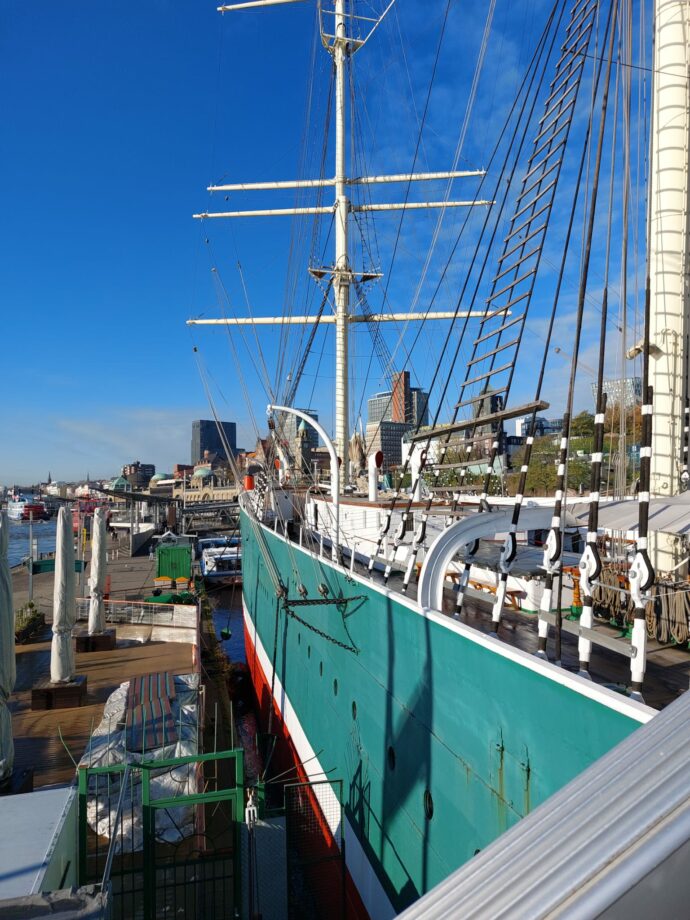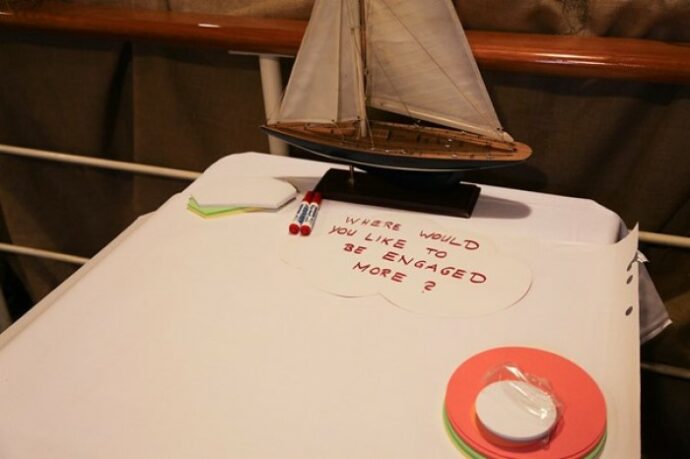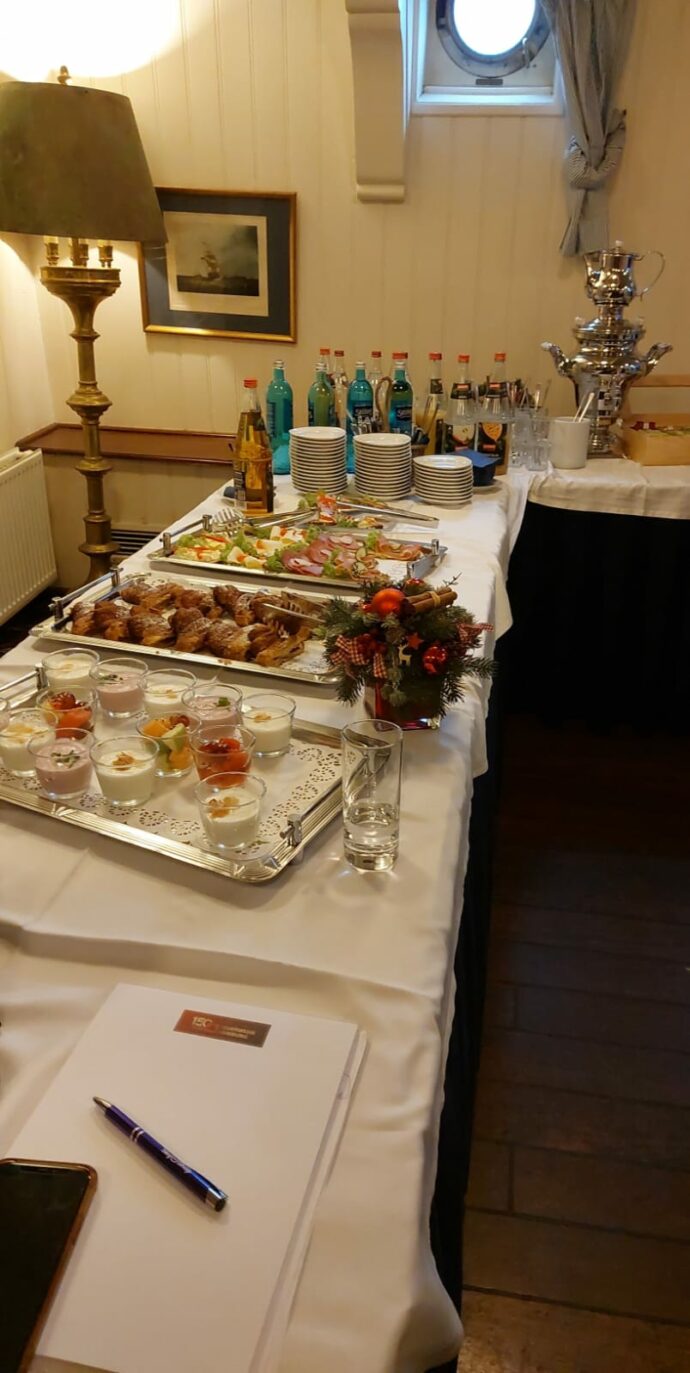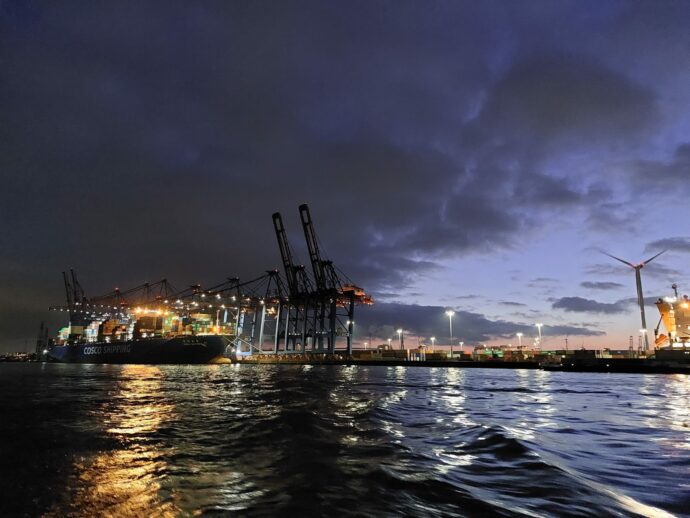New places, new contacts, new experiences, new opportunities… Whatever is the reason to participate international project most likely students and teachers end up receiving much more than they thought in the first place.
In November 2022, Oskar Leskinen from Laurea’s Safety, Security and Risk management degree programme participated in a weeklong Baltic Sea Youth Dialogue 2022: Civil Security event in Germany. It was organized by the Council of the Baltic Sea States and the Hamburg Fire and Rescue Services, and the aim of the week was to focus on improving societal security in the Baltic Sea region. Baltic Sea Youth Dialogue is an annual event that started in 2014 and it brings together young people who are interested in Baltic Sea Region affairs. Through dialogue and networking it is building intercultural understanding and gives platform for young voices to be heard. (Council of the Baltic Sea States 2023.)
There are a lot of international opportunities available for students and teachers but one just don´t get information about them easily without right channels and contacts. Laurea´s senior lecturer Hanna Iisakkila Rojas was working in the NEEDS project (Needs-based education and studies in societal security) that was coordinated by Council of the Baltic Sea States. During the project she had networked well with her project partners from different countries. When Council of the Baltic Sea States project partner was asking Hanna to promote the Baltic Sea Youth Dialogue event to Laurea´s students, she was happy to do it to help a person in her network. To promote the event was also an easy decision for her, since it seemed that the event would be a good opportunity for Safety, Security and Risk management students to gain experience and network.
“I saw a notification on our Teams channel about the project and decided to apply. At first, I was a bit unsure as I had a busy semester going on and couldn’t afford any new expenses, but after reading about the organization and checking their social media accounts I thought this could be a valuable experience for myself – and indeed it was” Oskar is recalling. The application process was simple and easy. It did not take long before Oskar received an email with a positive surprise. A couple of weeks forward, and the student was already on a flight to the destination, Hamburg, Germany.
 Figure 1. M/S Rickmer Rickmers (Oskar Leskinen 2022).
Figure 1. M/S Rickmer Rickmers (Oskar Leskinen 2022).
The week included a lot of class lessons and presentations about different factors which affect the security culture in the vicinity of the Baltic Sea. “I think the most memorable presentation was by a researcher, who spoke about the current health state of the Baltic Sea, and how it was affected by munitions dumped by Germany after the WW2. I wasn’t aware of how enormous those caches are and how they affect the biodiversity”, Oskar tells. The presentation went deep into the little details on DNA level, how the different type of toxins affect fish populations. Surprisingly, it seemed that nobody was bothered by this. The researcher was professional with the presentation so that everybody could understand it, and many seemed to like it too. Most participants had on their mind if it was safe to eat fish, and it was according to the scientist. A moment of relief for everyone, as straight after the presentation it was time for lunch – local fish.
A silent workshop for building an engagement roadmap
One of the assignments during the week was to create various outputs to an engagement roadmap through a silent workshop. In this case, the participants had to bring out ideas, explanations, and solutions for seven different questions presented in the workshop. The topics ranged from explaining the importance of international collaboration in civil security to raising awareness of people. Each student had to go through the questions within a certain time frame and answer to it on a piece of sticky paper. “I had my doubts in the beginning as I didn’t have suggestions for every topic, but it did not matter.” Oskar mentioned and continued: “This is where the diversity of our group kicked in, and we could cover all the topics with lots of different suggestions together as a team. I had never come across such a technique for activating students, and I think it worked well for a large group. Perhaps one day I will utilize it myself too.”
 Figure 2. One of the questions during the silent workshop. (Council of Baltic Sea States 2022).
Figure 2. One of the questions during the silent workshop. (Council of Baltic Sea States 2022).
 Figure 3. Morning fuel for the students (Oskar Leskinen 2022).
Figure 3. Morning fuel for the students (Oskar Leskinen 2022).
The whole week was spent on a majestic ship, Rickmer Rickmers which was built in 1896. It contained almost everything for the participants: it was working as a museum, a restaurant, and a classroom. It was carefully furnished and gave the immersion the participants were about to set sail for the week. Every morning would start with fresh coffee and sandwiches made by the restaurant personnel, and after a couple of hours of discussion it was time for lunch. The lunch always included two courses, a light starter and a heavier final dish. “It can be said that the conditions were optimal for producing new bright ideas” Oskar laughed. Participants were also provided a dinner free of charge during evenings in different restaurants all around the city of Hamburg. During the week, the students spent a lot of time together as a group. After the classes were over, most of the students continued socializing and ventured through the streets of Hamburg together. “Thanks to the intense week, I managed to network with couple of students well and we have been in touch ever since. I think this is the most valuable lesson and experience from the week: connecting with others and going through the effort of staying in touch after returning to home. In the field of security, the initiate comes from individuals” Oskar tells.
Short weeks in an international environment gives students great possibilities to improve their professional career. Although this project was not directly linked to a study unit, it was still an useful learning lesson for everyone. Similar exchange weeks provides participants opportunities to broaden their network and understanding of different organizations. What made this week unique was the fact it gave a possibility to utilize experience from wide range of young people to achieve a common goal in a project. This type of international project experience is valuable and for students it is useful in future working life. “What I am truly grateful for” Oskar says, “Is that the costs were covered by the organization, as it gives everyone an equal chance to attend such events. It is something which cannot be taken for granted”.
 Figure 4. Evening sail around the Elbe river (Oskar Leskinen 2022).
Figure 4. Evening sail around the Elbe river (Oskar Leskinen 2022).
References: